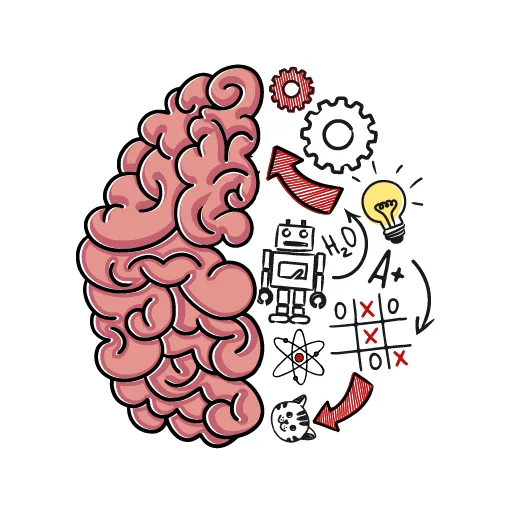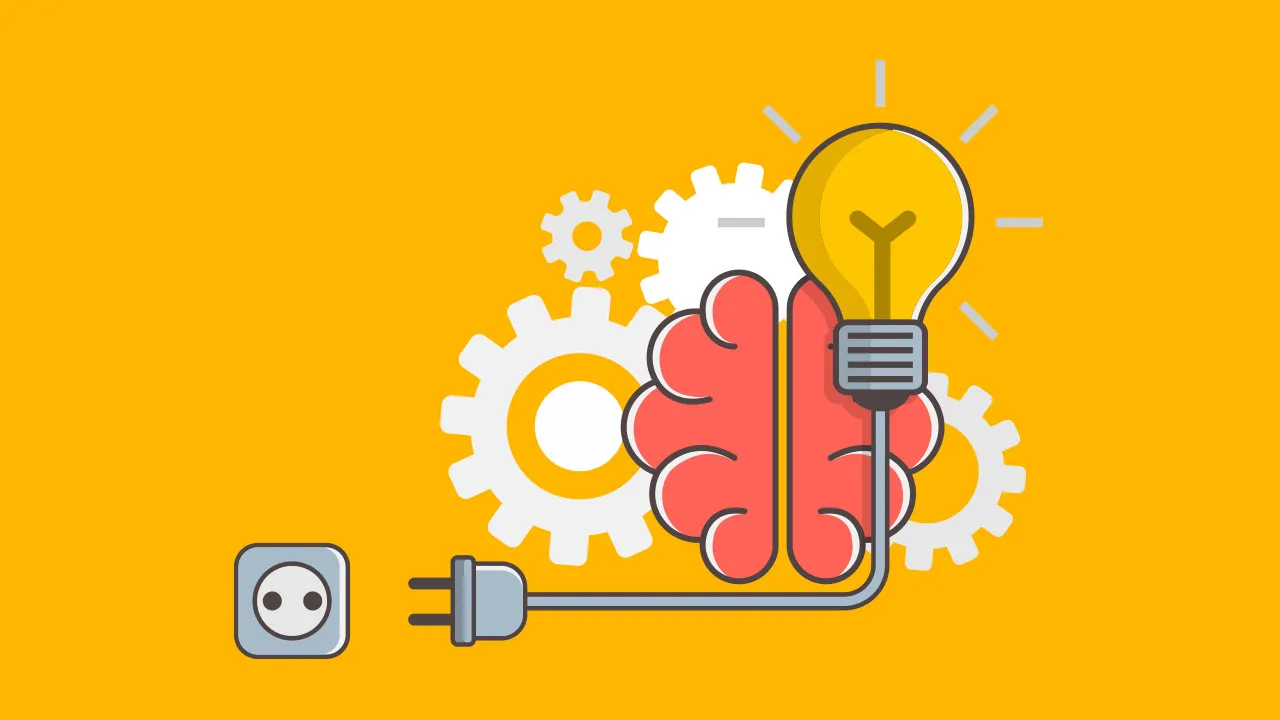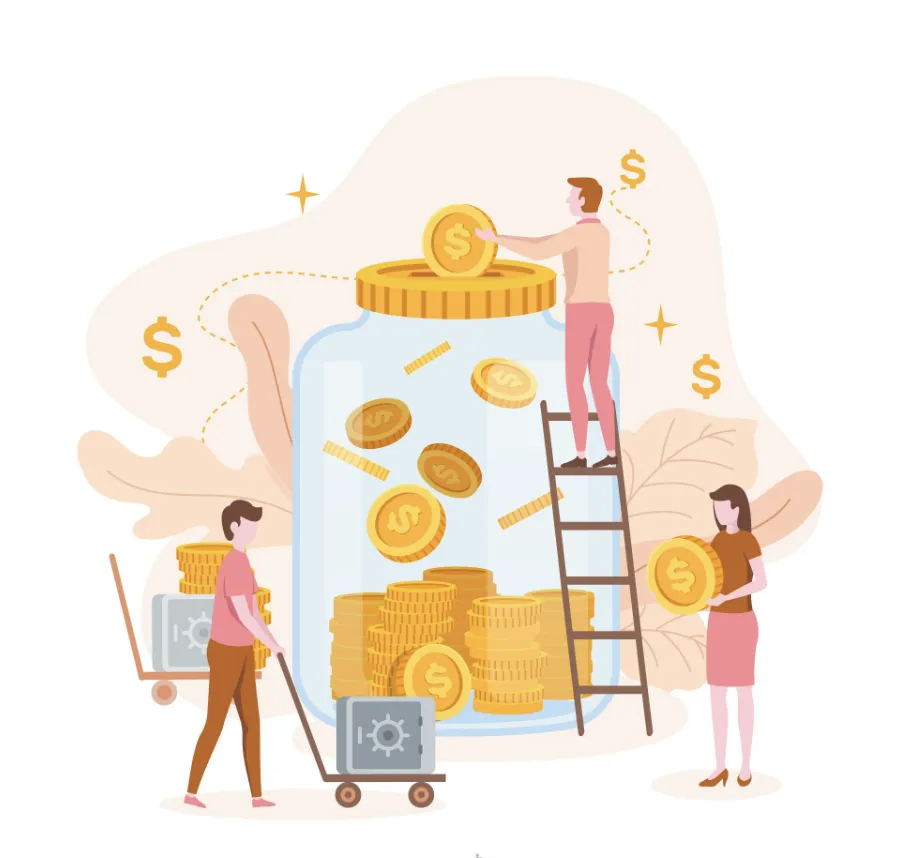Mental Triggers: Learn and Apply Key Persuasion Techniques to Sell More
Discover and learn the most powerful mental triggers used by top marketers and sales professionals to influence decisions and boost conversions in your business.
Have you ever wondered why some sales messages make you stop everything and buy immediately, while others barely catch your attention? The secret lies in understanding how our brains make decisions - and that's where mental triggers come into play.
These psychological shortcuts can be the difference between a struggling business and one that consistently converts prospects into loyal customers. Today, I'll share the most powerful mental triggers that top marketers use to influence decisions ethically and boost their sales dramatically.
Whether you're running an online business, creating content, or simply want to become more persuasive in your daily interactions, mastering these techniques will give you a significant advantage in connecting with your audience and driving action.
Table of Contents
- What Are Mental Triggers?
- The Psychology Behind Decision Making
- Scarcity: Making People Fear Missing Out
- Urgency: Creating Time Pressure
- Authority: Building Trust Through Expertise
- Social Proof: The Power of Following Others
- Reciprocity: The Golden Rule of Influence
- The "Because" Factor: Justifying Actions
- Curiosity: Creating Information Gaps
- Simplicity: The Path of Least Resistance
- How to Use Mental Triggers Ethically
What Are Mental Triggers?
Mental triggers are psychological mechanisms that our brains use as shortcuts when making decisions. Think of them as the brain's way of conserving energy - instead of carefully analyzing every single choice we face, our minds rely on these pre-programmed responses to guide our actions quickly and efficiently.
Research shows that we make thousands of decisions daily, from simple choices like what to wear to complex ones like major purchases. If our brains had to process each decision from scratch, we'd be mentally exhausted before noon. That's why these triggers evolved as survival mechanisms, helping us navigate the world without constant deliberation.
For business owners and marketers, understanding these triggers means you can present your products and services in ways that naturally align with how people think and decide. When used ethically, they help customers make decisions that are genuinely in their best interest while achieving your business goals.
The key insight from behavioral psychology research, particularly from books like Thinking, Fast and Slow, is that our brains operate in two modes: fast, automatic thinking that relies on mental shortcuts, and slow, deliberate analysis. Mental triggers primarily activate the fast-thinking mode, making decisions feel more natural and effortless.

The Psychology Behind Decision Making
Before diving into specific triggers, it's crucial to understand how our brains actually make decisions. Contrary to what we might think, most decisions aren't made through rational, conscious deliberation. Instead, they happen in a three-step process that occurs largely below our awareness.
First, your brain decides what you're going to do based on subconscious processing of available information, emotions, and past experiences. This happens almost instantaneously and without your conscious awareness.
Second, this decision surfaces into your consciousness, creating the feeling that you're actively choosing. Your rational mind then constructs logical reasons to justify the choice that's already been made unconsciously.
Finally, you act on the decision, feeling confident that you've made a thoughtful, reasoned choice - even though the real decision-making happened before you were consciously aware of it.
This process explains why emotional marketing often outperforms purely logical appeals. Your prospects' brains are making decisions based on feelings and mental shortcuts first, then finding rational justifications afterward. Understanding this process is fundamental to using mental triggers effectively, as explored in Noise: A Flaw in Human Judgment.
Scarcity: Making People Fear Missing Out
The scarcity trigger taps into one of our most primal fears: losing something valuable. When people perceive that something is rare, limited, or in short supply, they automatically assume it's more valuable and desirable. This isn't just marketing psychology - it's basic human nature rooted in our survival instincts.
Research shows that the fear of loss is approximately 2.5 times stronger than the pleasure of gain. This means people are much more motivated to avoid losing something than they are to gain something of equal value. Smart marketers leverage this by highlighting what prospects might miss out on rather than just what they'll gain.
Amazon masterfully uses scarcity by displaying "Only 2 left in stock" messages, which immediately activates the fear of missing out. Instead of viewing low inventory as a negative, they've turned it into a powerful sales driver that creates urgency and desire.
The key to using scarcity ethically is ensuring it's genuine. If you're constantly claiming "limited time offers" or "only a few left," people will catch on and your credibility will suffer. True scarcity works because it's real - there genuinely are constraints on availability, whether due to production limits, time constraints, or exclusive access.
When implementing scarcity in your business, consider offering bonuses to the first X number of customers, creating limited-edition products, or setting genuine deadlines for special offers. The more specific and believable your scarcity, the more effective it becomes.
Urgency: Creating Time Pressure
While scarcity focuses on limited quantity, urgency centers on limited time. This trigger works because humans have an inherent dislike of losing options. Once a time limit expires, the choice is no longer available, creating a sense of powerlessness that we instinctively want to avoid.
The urgency trigger is particularly effective because our brains are wired to prioritize immediate concerns over future ones. When faced with a ticking clock, we tend to act first and think later, which can override the natural tendency to procrastinate or "think it over."
Successful companies like Groupon built their entire business model around urgency, displaying countdown timers that create visible time pressure. Watching the numbers tick down, especially in the final minutes, creates anxiety that drives immediate action.
To use urgency effectively in your business, you need to provide genuine reasons for the time limitation. Don't just arbitrarily set deadlines - explain why the offer expires when it does. Maybe you're launching a new product and current inventory needs to be cleared, or perhaps you're running a limited-time partnership with another company.

Authority: Building Trust Through Expertise
The authority trigger is based on our natural tendency to trust and follow people we perceive as experts or leaders in their field. This isn't about being manipulative - it's about positioning yourself as a credible source of information and solutions.
Authority works because it reduces risk for the decision-maker. When someone with obvious expertise recommends something, it feels safer than trying to figure everything out independently. This is why we trust doctors in white coats, why financial advice from successful investors carries more weight, and why celebrity endorsements are so valuable.
Building genuine authority takes time and consistent effort. You can't just claim to be an expert - you need to demonstrate expertise through valuable content, case studies, testimonials, and proof of results. As discussed in books like The Challenger Sale: Taking Control of the Customer Conversation, true authority comes from bringing unique insights and challenging conventional thinking.
In your business, establish authority by sharing your knowledge freely through blog posts, videos, podcasts, or speaking engagements. Include credentials, case studies, and client results where relevant. The goal isn't to brag but to help prospects understand why your advice and recommendations are worth following.
Remember that authority is fragile - it takes years to build but can be destroyed by a single dishonest action or poor recommendation. Always prioritize your audience's best interests over short-term profits.
Social Proof: The Power of Following Others
Social proof leverages our fundamental need to belong and our tendency to look to others for guidance on how to behave. When we're uncertain about a decision, we naturally look at what similar people are doing and follow their lead.
This trigger is incredibly powerful because it works on multiple psychological levels. Not only does it reduce uncertainty by showing us what others have chosen, but it also helps us feel part of a group or community. Nobody wants to be the only person who made the "wrong" choice.
The strength of social proof increases with the number of people taking the action and how similar those people are to your prospect. Testimonials from people who share similar backgrounds, challenges, or goals with your target audience will be much more persuasive than generic praise.
You can leverage social proof through customer testimonials, case studies, user counts, social media shares, reviews, and ratings. Even something as simple as "Join 10,000+ other entrepreneurs who get our weekly newsletter" can be incredibly effective.
The key is authenticity - fake testimonials or inflated numbers will backfire spectacularly. Focus on collecting genuine feedback and showcasing real results from actual customers. This approach builds trust while demonstrating the value of what you offer.
Reciprocity: The Golden Rule of Influence
Reciprocity is perhaps the most ethical and sustainable mental trigger because it's based on providing genuine value first. When you help someone or give them something valuable, they naturally feel compelled to return the favor. This isn't manipulation - it's basic human courtesy and social bonding.
The power of reciprocity extends beyond simple transactions. When you consistently provide value without immediately asking for something in return, you build relationships and trust. People begin to see you as someone who genuinely cares about helping them succeed, not just someone trying to make a sale.
This principle forms the foundation of content marketing and the entire concept of building an audience. By creating valuable blog posts, videos, podcasts, or free resources, you're making deposits in the reciprocity bank account. When you eventually make an offer, people feel good about supporting someone who has already helped them.
For your business, start by identifying the biggest challenges your target audience faces and creating content that genuinely helps solve those problems. Offer free resources, answer questions, and be genuinely helpful without constantly pitching your products.
The insights from Morgan Housel's "The Psychology of Money" Book show how providing value first creates lasting relationships that benefit everyone involved.
The "Because" Factor: Justifying Actions
Our brains are constantly seeking reasons and justifications for our actions. Even when we make emotional or impulsive decisions, we need logical explanations to feel comfortable with our choices. The "because" trigger satisfies this need by providing reasons for action.
Research shows that people are much more likely to comply with requests when given a reason, even if the reason isn't particularly compelling. The simple act of providing justification makes people feel better about saying yes.
In your marketing and sales communications, always explain why you're making an offer, why it's priced as it is, why there are limitations, and why someone should act now. Don't assume the benefits are obvious - spell them out clearly and provide the logical framework your prospects need to justify their decision to themselves and others.
This is particularly important when using other triggers like scarcity or urgency. Don't just say "limited time offer" - explain why it's limited. Is it because you're testing a new service? Are you clearing inventory? Is there a genuine business reason for the constraint?

Curiosity: Creating Information Gaps
Curiosity is one of our strongest psychological drives. When we perceive a gap between what we know and what we want to know, our brains become motivated to seek information to close that gap. This drive is so strong that satisfying curiosity actually triggers the release of dopamine, the neurotransmitter associated with pleasure and reward.
The curiosity trigger works by creating an "information gap" - hinting at valuable information without revealing everything immediately. This creates mental tension that can only be resolved by learning more, which drives people to take action like clicking a link, opening an email, or making a purchase.
Headlines like "The Mistake 90% of Entrepreneurs Make (And How to Avoid It)" or "Why Smart Investors Are Buying This Instead of Stocks" create curiosity because they promise to reveal information that most people don't know.
To use curiosity effectively, combine it with relevance and value. The information gap you create should relate to something your audience genuinely cares about, and you must deliver on the promise when they take action. Creating curiosity just for its own sake without providing value will damage your credibility.
You can also amplify curiosity by adding controversy or contrarian perspectives. Claims that go against conventional wisdom naturally create curiosity because they challenge what people think they know.
Simplicity: The Path of Least Resistance
The human brain is constantly looking for ways to conserve energy, and complexity requires more mental effort than simplicity. When faced with multiple ways to achieve the same goal, people will naturally choose the path that seems easiest and most straightforward.
This is why "get rich quick" schemes are so appealing despite being largely ineffective - they promise simple solutions to complex problems. While you should never make false promises about ease or speed, you can make legitimate processes as simple and clear as possible.
The simplicity trigger works because it reduces perceived risk and effort. If your product or service seems complicated to use or implement, prospects will look for alternatives that appear more manageable. This is true even if your solution is objectively better.
In your marketing, focus on breaking down complex processes into simple steps. Use clear, jargon-free language and eliminate unnecessary complications from your offerings. The goal isn't to dumb things down but to make genuinely valuable solutions accessible and approachable.
Consider the success of companies like Apple, which built their brand around making complex technology simple and intuitive. The principles from The ONE Thing: The Surprisingly Simple Truth About Extraordinary Results show how focusing on simplicity can lead to extraordinary outcomes.
How to Use Mental Triggers Ethically
The power of mental triggers comes with responsibility. These techniques work because they tap into fundamental aspects of human psychology, which means they can be used to help people make good decisions or to manipulate them into choices that aren't in their best interest.
Ethical use of mental triggers starts with genuinely caring about your customers' success and well-being. Before implementing any trigger, ask yourself: "Will this help my customer make a decision that's truly in their best interest?" If the answer is yes, you're on the right track.
Always deliver on your promises. If you create urgency around an offer, stick to your deadline. If you claim scarcity, make sure it's real. If you position yourself as an authority, provide real expertise and value. Consistency between your marketing messages and your actual delivery builds trust and creates long-term success.
Use multiple triggers together thoughtfully. Combining scarcity with social proof, or authority with reciprocity, can be very effective - but don't overwhelm people with too many psychological pressures at once. The goal is to help people make decisions more easily, not to manipulate them into choices they'll regret.
Finally, remember that the best marketing doesn't feel like marketing at all. When you use mental triggers ethically and effectively, your prospects feel like you're helping them solve problems and achieve goals, not like you're trying to sell them something.
Implementing Mental Triggers in Your Business
Now that you understand these powerful psychological principles, the key is implementing them systematically in your business. Start by identifying which triggers are most relevant to your audience and industry. B2B services might rely more heavily on authority and social proof, while consumer products might benefit more from scarcity and urgency.
Create a content calendar that incorporates different triggers across your marketing materials. Your blog posts might use curiosity in headlines and authority in the content. Your email campaigns could leverage reciprocity by providing value before making offers. Your sales pages might combine social proof with simplicity to make decisions easier.
Test and measure the effectiveness of different triggers with your specific audience. What works for one business might not work for another, and what works for one audience segment might not work for others. Pay attention to metrics like click-through rates, conversion rates, and customer satisfaction to understand which approaches resonate most strongly.
Remember that mastering mental triggers is a journey, not a destination. As you become more skilled at recognizing and implementing these principles, you'll find that persuasion becomes more natural and effective. Your marketing will feel less pushy and more helpful, your sales conversations will flow more smoothly, and your customers will be happier with their decisions.
The businesses that thrive in today's competitive marketplace are those that understand human psychology and use that understanding to create genuine value for their customers. By mastering these mental triggers and using them ethically, you'll be well on your way to building a more successful and sustainable business.
For deeper insights into the psychology of decision-making and persuasion, I recommend exploring resources like The Subtle Art of Not Giving a F*ck and The 4-Hour Workweek: Escape 9-5, Live Anywhere, and Join the New Rich to understand how successful entrepreneurs apply these principles in practice.
Start implementing one or two of these triggers in your next marketing campaign, and observe how they affect your results. With practice and ethical application, these mental triggers will become powerful tools for helping your customers make decisions that benefit everyone involved.

